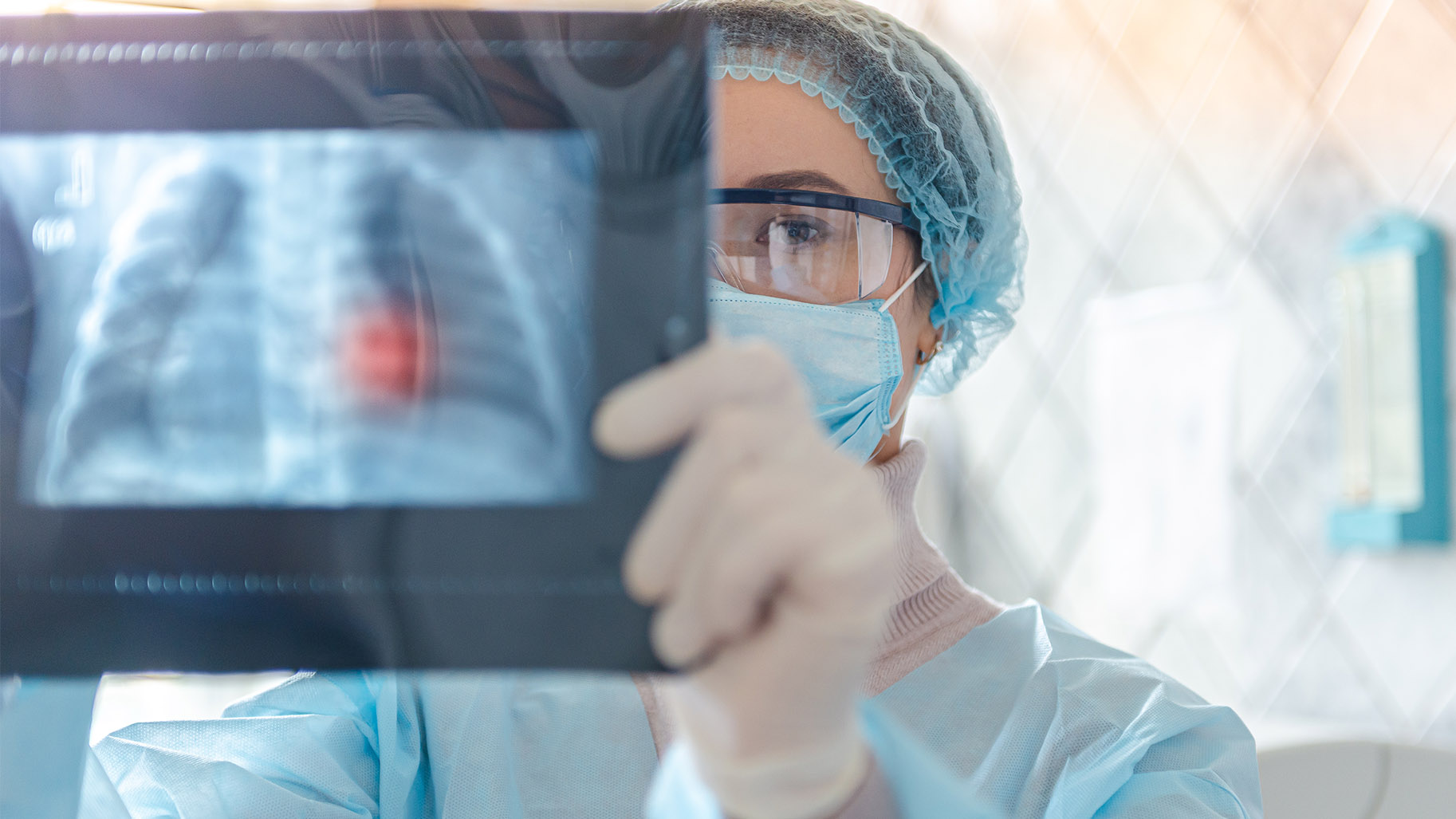RadioCovid: an image analysis tool to aid diagnosis
Date:
Changed on 31/10/2023

At the end of March, we began discussions with a radiologist from the Tenon Hospital of the APHP, F. Cornelis, and T. Colin from the Sophia Genetics company - with whom we collaborate in particular within the framework of the Pimiento project supported by MSDAvenir and the Inria Foundation - about the possibility of improving the management of Covid patients with the help of an AI evaluation of the severity of the disease. We had encouraging preliminary results fairly quickly but with too few patients to have sufficient statistical significance. Unfortunately, this collaboration did not go beyond the proof of concept stage for reasons beyond our control, but it did familiarize us with the radiological aspects of the disease.
One week later, M. Zysman, P. Berger and F. Laurent proposed us to collaborate on their project of a hospital clinical research program (PHRC) with the Bordeaux University Hospital (radiology and respiratory diseases departments) and the Cardio-Thoracic Research Center of Bordeaux, the CRCTB, (INSERM U1045) which significantly increased the number of patients studied and added clinical and biological information to the radiological images for each one.
In close collaboration with the clinical (CHU Bordeaux, CRCTB) and methodological (USMR) partners, the PHRC, finally accepted at the end of May, is developing a retrospective study by IA of the severity of the disease based on the admission data (scanner, biology, clinical) of several hundred patients from Bordeaux and several other CHU.
The inclusion of patients has begun and the start of the analysis of the first group of patients should not be long in coming. All our efforts on the disease are focused on this PHRC in order to be able to determine criteria and algorithms predictive of the degradation of the disease in order to be able, by anticipation, to better manage the patients most at risk.
The CHU was strongly involved and the legal aspects were quickly settled with the participation of the CPPI and the centre's lawyers. While waiting for the improvement of the health situation, we work mainly by email and video-conference. The number of Covid patients is now relatively low in the region; this will free up extra time for the project by reducing the clinical workload of the doctors.